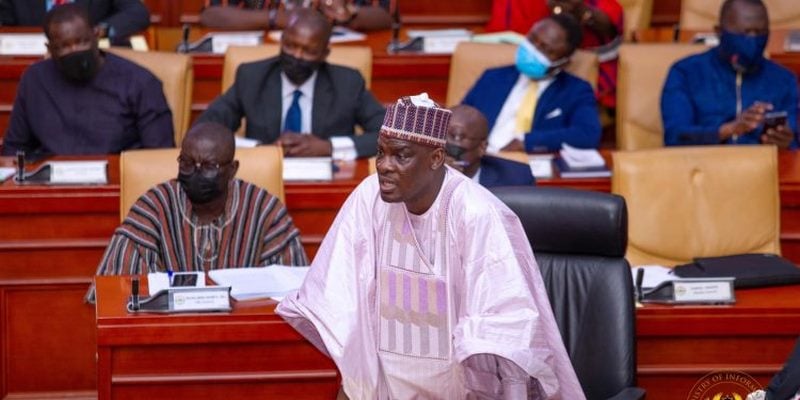Former Minority Leader Haruna Iddrisu has initiated a significant political move by planning to invoke Article 97 (1)(g) of the Constitution to compel members of the Majority side in Parliament to vacate their seats. This decision comes on the heels of an announcement made by four Majority MPs, including the former Minister of State Cynthia Morrison, who have expressed their intentions to run for re-election as independent candidates. Under Article 97 (1)(g), a Member of Parliament is required to vacate their seat if they leave the political party with which they were elected or if they choose to remain in Parliament as an independent representative. Iddrisu’s announcement signals a deliberate challenge to the status quo within the ruling New Patriotic Party (NPP), and it has the potential to enact significant changes within the parliamentary landscape.
Cynthia Morrison, currently the MP for Agona West, is one of the key figures at the center of this political controversy. Along with two other Members of Parliament from the NPP, she is willing to break party lines and contest elections independently, a move that raises questions about party loyalty and discipline. Traditionally, such a move is seen as a rebellion against party authority and could place their political futures in jeopardy if the party decides to take retaliatory measures. The ramifications of these decisions might extend beyond individual careers, potentially threatening the overall unity and cohesion of the Majority faction itself.
By invoking Article 97 (1)(g), the Minority aims to hold these MPs accountable for their choice to seek independent candidacy. Successfully enforcing this provision could lead to a significant political shakeup—in particular, the likelihood of those seats being vacated, which would feed into a broader narrative of party fragmentation within the NPP. This move could also have unintended consequences, such as encouraging other dissenting members to test the waters of independent political life, further challenging the Majority’s unity and effectiveness within Parliament.
If the Minority’s efforts yield success, it may usher in exciting yet chaotic times in Ghana’s political arena. The potential for triggering fresh elections in the impacted constituencies raises considerable stakes, reshaping the NPP’s strength in Parliament and altering the landscape of legislative governance. This maneuver by the Minority not only seeks to capitalize on the discontent within the Majority but also reflects a strategic play to increase their influence, particularly if they can successfully reclaim seats that might be vacated.
On a broader level, this development brings into focus the deeper issues surrounding political party loyalty and internal democracy within Ghana’s parliamentary system. Article 97 (1)(g) serves as a constitutional check that aims to maintain party allegiance, but it also exposes the tensions that arise when individual ambitions clash with collective party interests. The situation creates an intriguing scenario where principles of democracy and accountability are put to the test, with the stakes high on both sides of the aisle.
In conclusion, Haruna Iddrisu’s plan to invoke Article 97 (1)(g) could either reinforce or disrupt the political environment in Ghana, depending on the outcomes of the procedural actions taken by the Minority. As members of the Majority side navigate their newfound status as independent candidates, the implications of their choices will unfold in real-time, providing a gripping narrative indicative of the complexities and challenges facing political parties in maintaining cohesion amid individual aspirations. The unfolding events promise to exert influence not just within Parliament, but also across the country’s political fabric as a whole.














